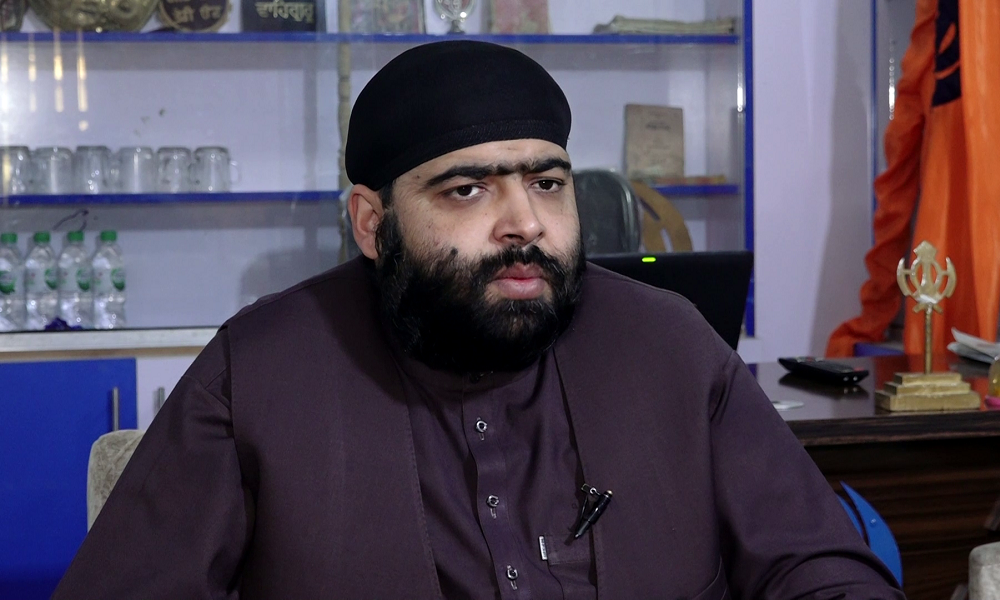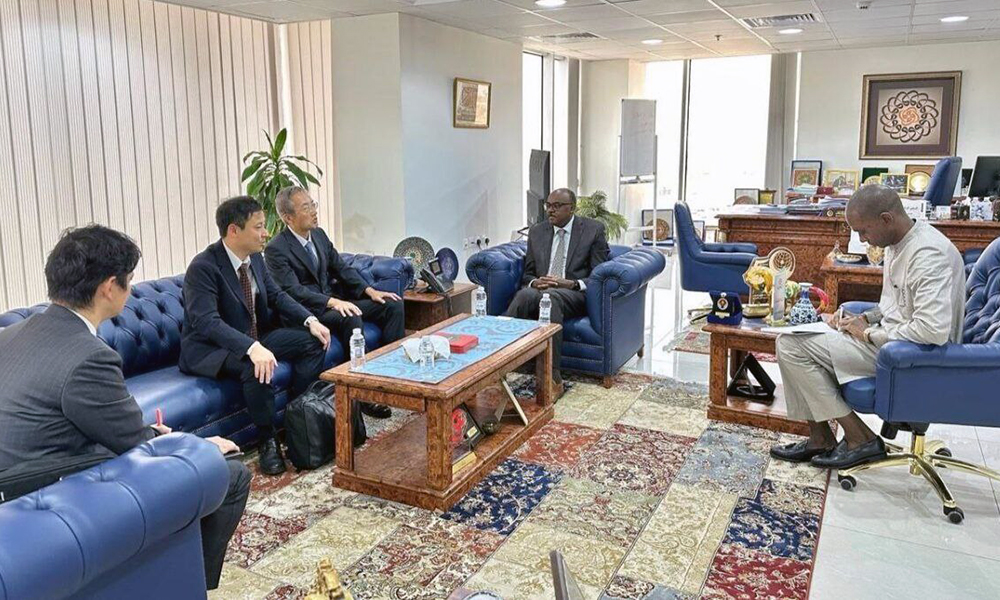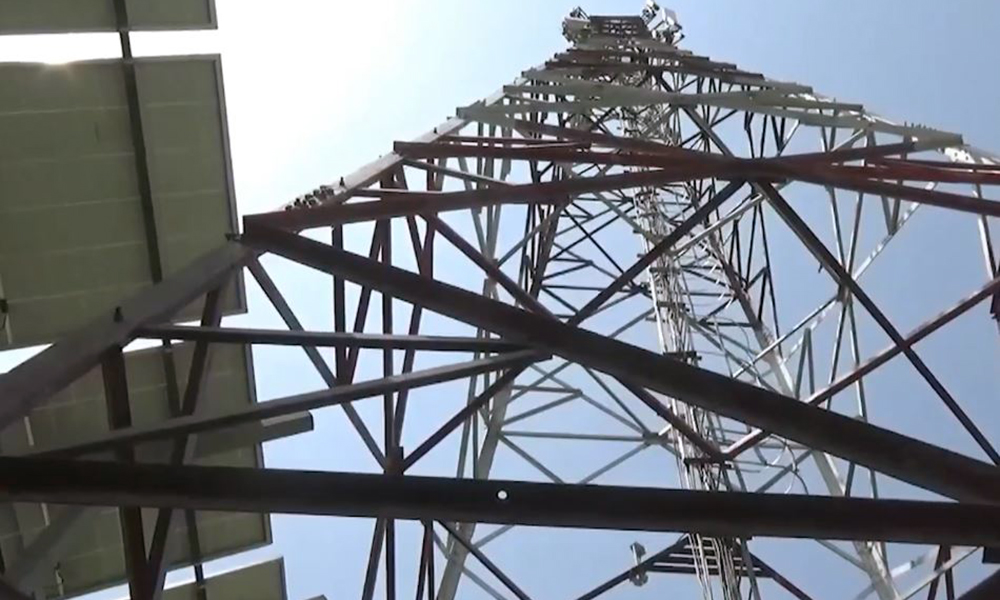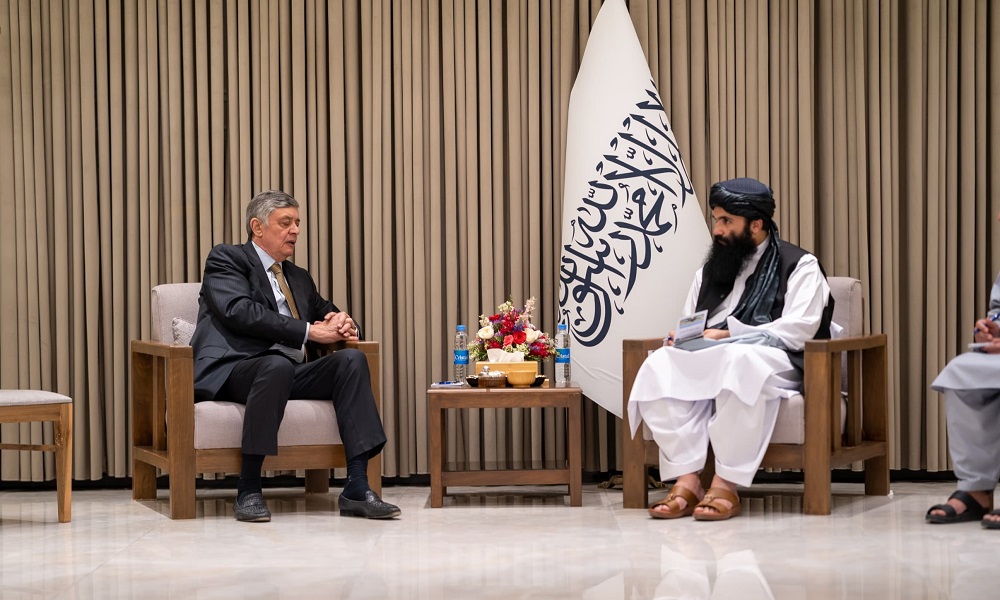Latest News
Afghan Sikhs and Hindus call on IEA to return their usurped houses

One of the few remaining Sikhs in Afghanistan, Manjit Singh Lamba, has called on the Islamic Emirate of Afghanistan (IEA) to help return their houses and other properties that were taken from them over the years.
Lamba, who is head of the Afghan Council of Hindus and Sikhs, said the majority of his community fled the country after a spate of deadly bombings against them, and after the political developments two years ago.
He said 45 Hindu and Sikh families are still in Afghanistan and that he did not leave, but has continued to live in Kabul.
Lamba also called on Afghan Sikhs to return to their country. At one time, “there were many people, 700,000 families. The revolution came and after that, our people gradually left the country,” he said.
“Currently, a total of approximately 45 to 50 Sikh and Hindu (families) live in Afghanistan in provinces such as Nangarhar, Kandahar and Kabul,” he added.
The Islamic Emirate of Afghanistan has stressed that they are committed to addressing all the problems of Hindus and Sikhs.
IEA officials stated that the lives and properties of Hindu and Sikh citizens are protected and they can perform their religious rituals in a safe environment without any worries.
Zabihullah Mujahid, the spokesman of the IEA, said that those who have gone abroad can return to the country without any worries.
“The Islamic Emirate commits to take care of the minorities and the Hindus are also safe. If they have gone in the past years, it is not our obligation, but we invite them to come to Afghanistan; they can perform their rituals and their security will be ensured,” said Mujahid.
Some social experts meanwhile have said that the Hindu and Sikh community in Afghanistan are among the ethnic minority groups in the country, but that various crises forced them to leave their homeland.
Latest News
Tarig Ali Bakheet and Japan’s Deputy Foreign Minister discuss Afghanistan’s situation
Both sides emphasized the importance of continued collaboration to address the urgent needs of the Afghan people.

Tarig Ali Bakheet, the Special Representative of the Organization of Islamic Cooperation (OIC) for Afghanistan, met and held discussions with a Japanese delegation led by Masayuki Kamada, Deputy Minister for Foreign Affairs of Japan, regarding the situation in Afghanistan.
According to a statement by the OIC, the meeting mainly focused on the current situation in Afghanistan and explored ways to enhance humanitarian cooperation between the organization and Japan.
Based on the statement, both sides emphasized the importance of continued collaboration to address the urgent needs of the Afghan people.
The meeting took place at the office of the OIC Special Representative for Afghanistan in Jeddah, Saudi Arabia.
The statement also noted that the Consul General and Deputy Consul General of Japan in Jeddah were part of the Japanese delegation.
Latest News
AWCC activates new site in Nangarhar’s Kuz Kunar district
Residents of Kuz Kunar expressed happiness over gaining access to telecom and internet services and called for the further expansion of such services across Nangarhar.

Officials from Afghan Wireless Communications Company (AWCC) say they have activated a new site in the Kuz Kunar district of Nangarhar province.
According to AWCC representatives, the launch of this site has provided thousands of families with access to telecommunication and internet services.
They added that Afghan Wireless will also soon launch 4G internet services in the area.
Meanwhile, officials from Nangarhar’s Department of Telecommunications and Information Technology stated that efforts are underway to expand telecom services to other remote areas of this province.
Rahimullah Shinwari, head of the ATRA (Afghanistan Telecom Regulatory Authority) office in Nangarhar, said that with the activation of the new AWCC site, 25,000 families will now have access to telecom and internet services.
Residents of Kuz Kunar expressed happiness over gaining access to telecom and internet services and called for the further expansion of such services across Nangarhar.
In recent years, AWCC has extended its telecom and internet services to many remote areas across the country.
Latest News
Moscow’s move a ‘significant step toward recognizing Afghanistan’s political realities’, says Haqqani

Acting Minister of Interior Sirajuddin Haqqani on Wednesday met with Zamir Kabulov, Russia’s special envoy for Afghanistan, and Dmitry Zhirnov, Russia’s ambassador to Kabul.
Haqqani expressed appreciation for Moscow’s recent decision to remove the Islamic Emirate from its list of terrorist organizations. He described the move as “a significant step toward recognizing the political realities of Afghanistan.”
In a statement, the interior ministry said that both sides emphasized the importance of upgrading diplomatic relations to the level of embassies and reaffirmed their commitment to mutual cooperation in the fields of security and trade.
During the meeting, the two parties also discussed regional and bilateral cooperation in the areas of security, economy, and commerce, and stressed the need to strengthen ties between the two countries.
-

 World4 days ago
World4 days agoThousands of protesters rally against Trump across US
-

 World5 days ago
World5 days agoIran, US end nuclear talks in Rome, agree to meet next week
-

 Latest News4 days ago
Latest News4 days agoPolio vaccination campaign launched in Afghanistan
-

 International Sports4 days ago
International Sports4 days agoIPL 2025: 14-year-old Vaibhav Suryavanshi becomes youngest IPL player
-

 International Sports2 days ago
International Sports2 days agoIPL 2025: Robo-Dog ‘Champak’ explained
-

 Latest News3 days ago
Latest News3 days agoChina invites various Afghan delegations to attend Shanghai forums
-

 Latest News3 days ago
Latest News3 days agoAriana Afghan Airlines increases flights to China
-

 World3 days ago
World3 days agoPentagon chief Hegseth shared sensitive Yemen war plans in second Signal chat, source says























